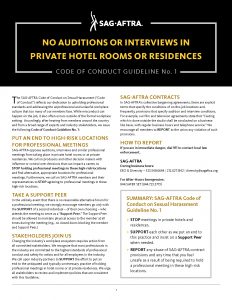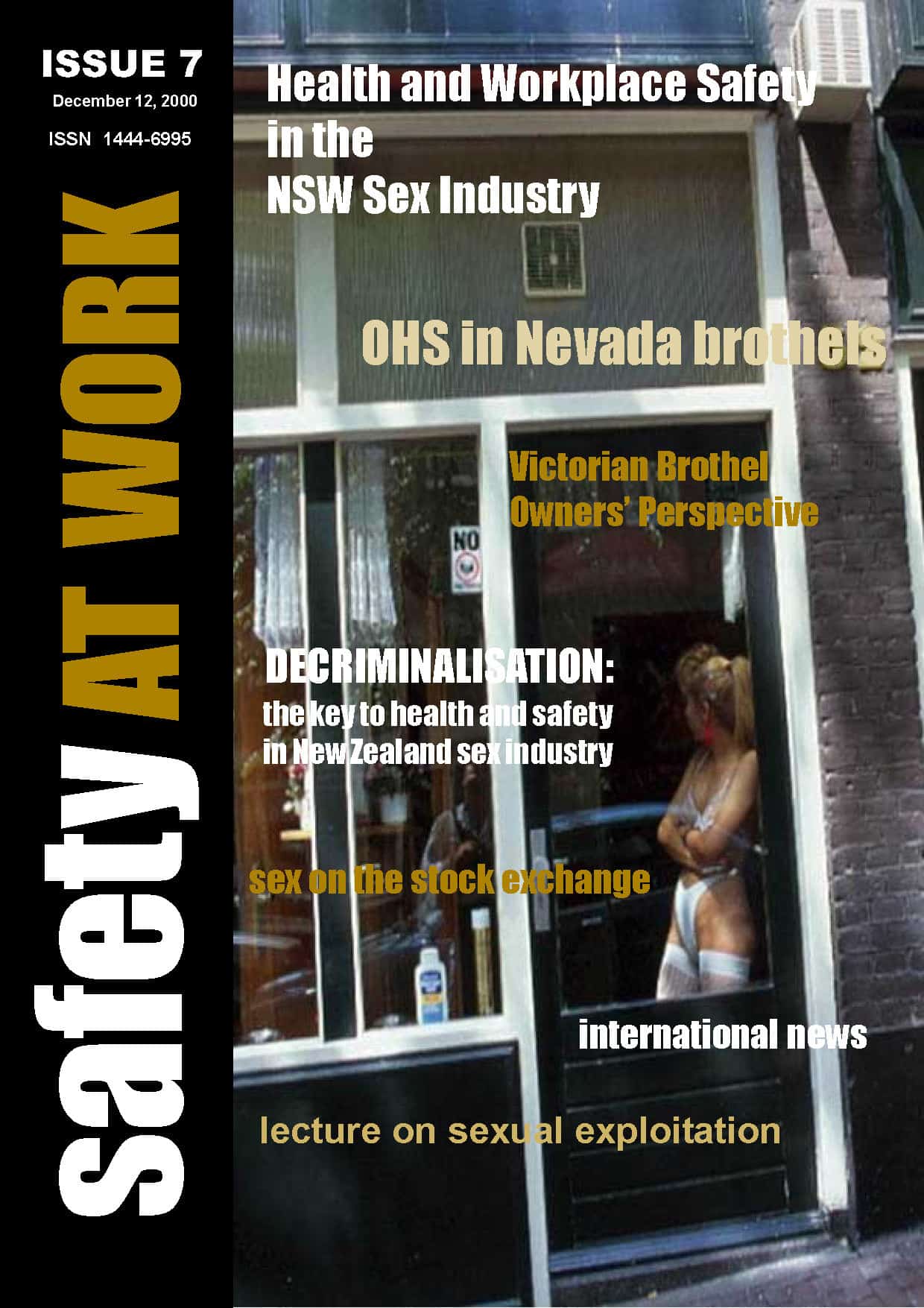 Australia continues to develop various Codes and Guidances for the prevention and management of sexual harassment, particularly in the creative industries. America’s Screen Actor’s Guild (SAG) released some guidance about its Code of Conduct on April 12 2018. It is educative but Australia can do better.
Australia continues to develop various Codes and Guidances for the prevention and management of sexual harassment, particularly in the creative industries. America’s Screen Actor’s Guild (SAG) released some guidance about its Code of Conduct on April 12 2018. It is educative but Australia can do better.
A positive in SAG’s announcement is that it clearly places sexual harassment under the category of workplace safety which allows for a broad approach to the hazard and one that is supported by legislation and an employer’s duty of care.

 On 12 December 2017, part of Australia’s screen and television industry held a forum in Sydney about sexual harassment in the sector and what could be done to reduce this workplace hazard. This initiative occurred a day before an
On 12 December 2017, part of Australia’s screen and television industry held a forum in Sydney about sexual harassment in the sector and what could be done to reduce this workplace hazard. This initiative occurred a day before an 
